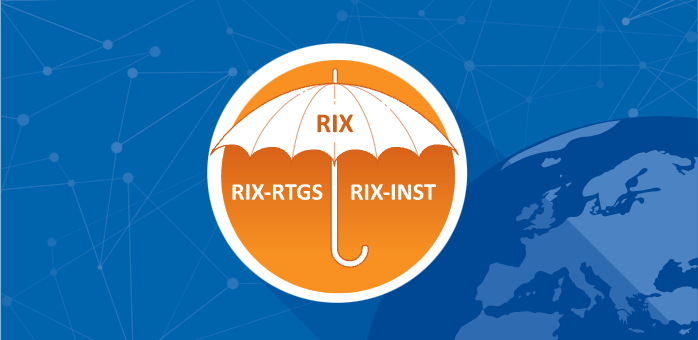RIX-INST Opens Doors
Implications for Sweden's Banking Landscape and A2A Players
Sylvestre Thenor
12/5/20243 min read


Sweden's central bank, Riksbanken, has made an important decision. It will allow existing banks to join RIX-INST, the country's instant payment system. This move presents new opportunities and challenges that will change how payments and banking work in Sweden. It may also affect Account-to-Account (A2A) players, who have relied on their strong connections with central banks as a key advantage.
Understanding RIX-INST and Its Evolution
RIX-INST is Sweden's backbone for instant payments, facilitating real-time transactions across various financial institutions. Historically, access to RIX-INST was predominantly through Swish, a widely adopted mobile payment system. Incumbent banks like SEB, Nordea, and Swedbank did not have direct access, which meant that A2A providers had to maintain accounts within these banks to enable instant intra-bank transfers. This requirement effectively created a barrier to entry, allowing A2A players to position themselves uniquely in the market by offering seamless and instant transfers.
Strategic Ramifications of Riksbanken's Decision
Positive Implications:
Enhanced Competition and Innovation: By allowing banks to join RIX-INST, Riksbanken fosters a more competitive environment. Banks can now offer instant payment services directly, pushing A2A providers to innovate and differentiate their offerings to maintain their market positions.
Streamlined Payment Processes: Direct access to RIX-INST for banks can lead to more streamlined and efficient payment processes. Customers may benefit from reduced transaction times and improved reliability, enhancing overall user experience.
Broader Accessibility: With more banks participating, instant payments' reach extends beyond the traditional Swish user base. This inclusivity can drive higher adoption rates across diverse customer segments.
Negative Implications:
Decrease of A2A Providers' Moat: A2A players have relied on exclusive partnerships with major banks to offer instant payments. With banks now directly integrated into RIX-INST, this unique selling proposition diminishes, potentially reducing the A2A providers' competitive edge.
Increased Pressure on Margins: As banks enter the instant payment space, A2A providers may face increased pressure on their profit margins. With their extensive customer base and resources, banks could undercut A2A players in pricing and service offerings.
Potential Market Saturation: An influx of instant payment solutions from multiple banks might lead to market saturation, making it challenging for A2A providers to distinguish their services and retain customer loyalty.
Increased AML and Fraud Risks: Instant payments happen right away, which makes it hard to stop fraud or money laundering if it occurs. This quick processing can make it difficult to watch for and block suspicious transactions. Also, traditional banks may have to completely update their systems to work with instant payments, which could lead to high costs and operational issues.
More on A2A Players
A2A providers, who have thrived on maintaining strong relationships with Sweden's largest banks, now face a pivotal moment. These partnerships are instrumental in offering a seamless payment experience. With banks gaining direct access to RIX-INST, A2A players must reassess their value propositions and strategic alliances.
Strategic Adjustments for A2A Providers:
Diversification of Services: A2A providers might need to diversify their service offerings beyond instant payments to remain competitive. This could include value-added services such as enhanced security features, personalized financial management tools, or integration with emerging technologies like Verification of Payee.
Strengthening Customer Relationships: Building deeper relationships with end-users can help A2A providers foster loyalty beyond transactional convenience. Tailored customer experiences and responsive support can differentiate A2A services in a crowded market.
Exploring Niche Markets: Focusing on niche markets or specialized sectors where instant payments are crucial but underserved can provide A2A players with new growth avenues.
Factors Influencing Riksbanken's Regulatory Decisions
Several regulatory and strategic considerations likely influence Riksbanken's move to include banks in RIX-INST:
Promoting Financial Stability: Ensuring that major banks have direct access to instant payment infrastructures can enhance the financial system's overall stability and resilience, reducing reliance on third-party providers.
Encouraging Inclusivity: By opening RIX-INST to more banks, Riksbanken promotes financial inclusivity, ensuring that a broader range of institutions can offer instant payment services to their customers.
Aligning with Global Standards: As instant payment systems become standard globally, Riksbanken's decision aligns Sweden with international trends, positioning its financial sector for greater integration and interoperability.
Future Outlook: Shaping the Payments Landscape
Looking ahead, adding banks to RIX-INST will have a lasting impact on Sweden's payment system:
Consolidation of Services: We may witness a consolidation of payment services, with banks leveraging RIX-INST to offer comprehensive financial solutions that integrate seamlessly with their existing offerings.
Innovation Drive: The competitive pressure on A2A providers could spur innovation, leading to more advanced payment technologies and services that cater to changing consumer needs.
Enhanced Consumer Choice: Consumers will benefit from a wider array of instant payment options and increased flexibility in choosing providers that best meet their speed, security, and convenience preferences.
Conclusion
Riksbanken's decision to let existing banks join RIX-INST is a key change for Sweden's payment system. This move increases competition and provides more access to instant payments. However, it also pushes Account-to-Account (A2A) providers to innovate and change how they fit into the system. As the financial sector adjusts to these changes, everyone must understand the new dynamics to seize opportunities and tackle challenges. For those interested in payments, this development highlights how financial technologies always evolve and how strategic actions influence their success.
CONTACT US
contact@quarenta.se


